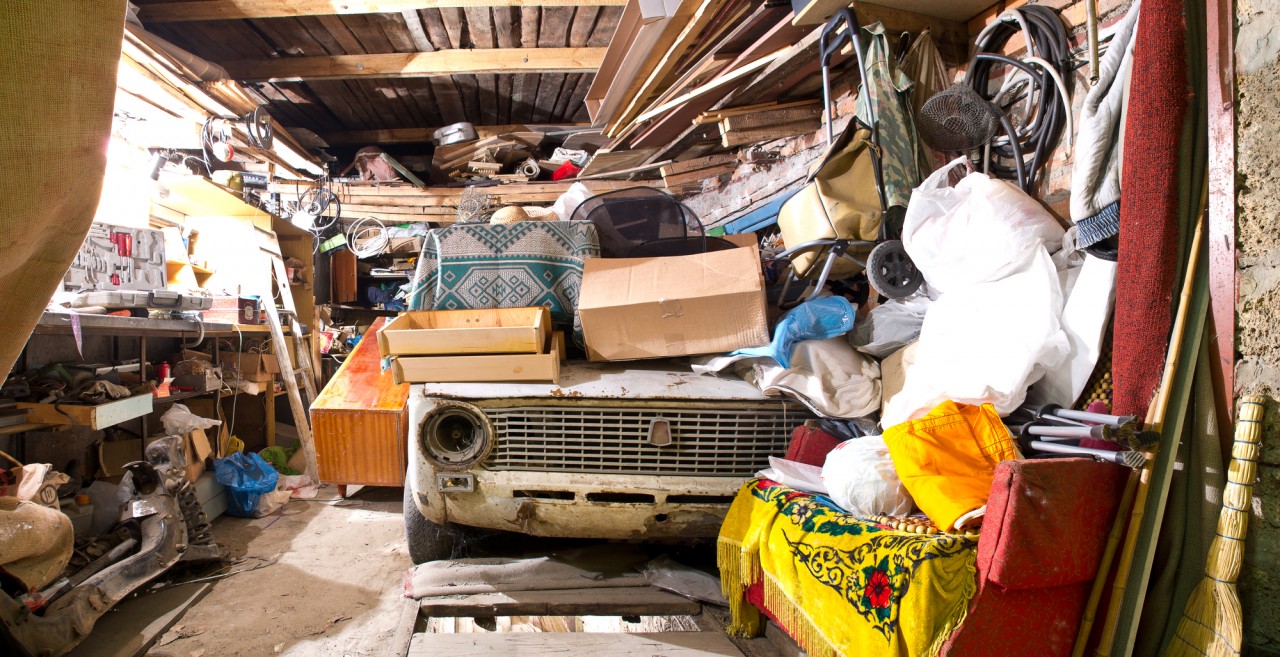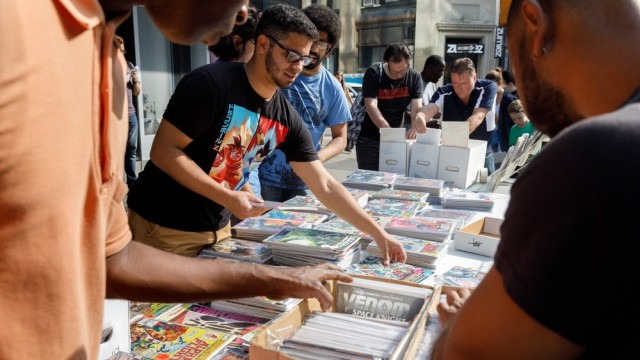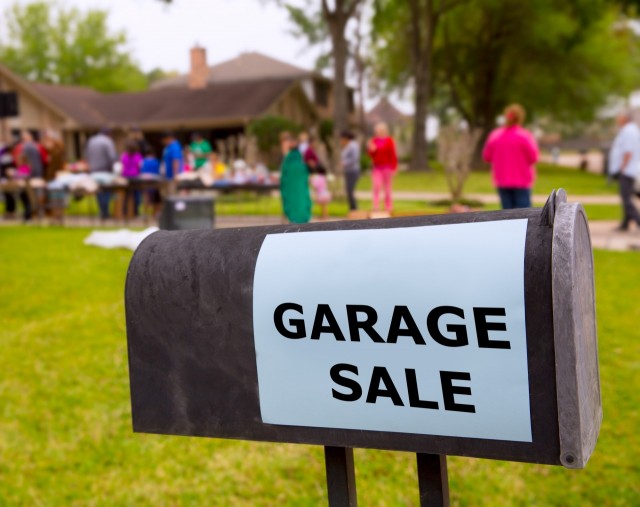
Minimalism is about living simply, so newcomers to the lifestyle may feel that collecting is not an option. While some minimalists discourage keeping anything that doesn’t serve a practical purpose, there is a surprising correlation between collecting and minimalism. Whether you collect stamps, books, coins, or action figures, there can be a purpose behind the practice.
As long as you mindfully collect your items, you’ll be able to organize them in a way that brings you peace. You can even give items gathering dust to people who will cherish them, simplifying your space in the process.
Refining your collections could serve as a form of clarifying your identity. After all, you start to see your hobbies and possessions as defining characteristics of yourself. Paring these down helps you define your identity — not the other way around.
Hoarding vs. Collecting
As a minimalist, you must have a clearcut boundary defining the difference between “collecting” and “hoarding.” If you don’t, collecting can quickly turn into hoarding.
The practice of keeping excess things varies in severity. Clutter is separated into four clinical categories:
- Clutter: Items are strewn about haphazardly and may not have a theme, but they aren’t acquired excessively nor do they inhibit functioning nor cause significant distress;
- Squalor: Items aren’t intentionally sought out but are instead accumulated due to neglect or the inability to discard them;
- Hoarding: Items are acquired in any way possible, and discarding is avoided due to great distress, leading to unkempt, unsafe environments;
- Collecting: Items are of obvious value and are organized in a neat, presentable way.
The difference between hoarding and collecting, squalor, or normal clutter lies in the intent and severity. Clutter isn’t damaging on its own, but it can become so when it inhibits daily activities.
Hoarding Disorder
While the term “hoarder” might be casually thrown around to describe anyone that keeps a messy home, defining the condition isn’t that simple. About 2% to 6% of the population is afflicted with hoarding disorder, a psychological classification within the Diagnostic and Statistical Manual of Mental Disorders.
For those who struggle with storing an exorbitant amount of things that seem to have no value to others, the disorder can wreak havoc on the individual’s life and, often, the lives of those around them.
Hoarding disorder may affect:
- Personal relationships;
- The ability to work;
- Social interaction;
- Daily functioning;
- Mental health;
- Physical health;
- Safety.
Excess items steal space from your home and your brain. This may not only create an unsafe, unkempt environment, but it can also add to feelings of loneliness and isolation.
A hoarder will usually experience elevated distress when faced with the thought of discarding anything. If someone has several arbitrary “collections” that inhibit daily tasks such as bathing and cooking, they’re past the point of being a collector.
Collecting as a Hobby
If you stay safely in the collecting zone, your minimalist lifestyle can coincide flawlessly. Usually, true collectors stick to one or two themes and display them in an organized fashion. In contrast to hoarding, they want to show off their collection or simply find it rewarding to admire.
True collecting as a hobby can be quite healthy. Collecting often serves as a social integration tactic. Niche communities revolve around obtaining certain types of items, and collectors may find socialization to be a perk.
If you are a solitary collector, you may be using items to solidify your identity. This can be a positive step in self-exploration. Material possessions may even serve as signals to potential friends, business partners, and romantic interests.
Health Benefits of Collecting Things
Having a hobby, like collecting, can avert your attention from life’s stressors. A University of California study found that leisure activities are correlated with prolonged:
- Lower heart rate;
- Increased happiness;
- Less boredom;
- Decreased unhealthy behaviors.
The study also found, however, that leisure activity is most effective without distractions. This adds to the notion that you must keep clutter and impulse purchases to a minimum to have a healthy collection or two.
Guide to Minimalist Collecting
There are several ways to practice minimalism while collecting. From incorporating collectibles into daily habits to organizing to your heart’s content, you can find a fun way to merge the two.
Start New Collections
There is no set limit on the number of collections any one person can have. If you want to start a new collection, you can do so while remaining dedicated to your lifestyle.
If you’re interested in something, don’t deny yourself the pleasure of indulging. Starting new collections can be intimidating if you are a minimalist, but doing so doesn’t have to be shameful. It just takes a little bit of finesse.
To start a new collection, do your research. Find out everything you can about the hobby. If you are considering collecting comic books, find advice on how to do so efficiently. Look into groups of fellow comic collectors; strategize themes to prioritize, and find out how others store comics for preservation.
Combine Novelty With Practicality
While every collection doesn’t have to serve a practical purpose, it’s a huge benefit to minimalism if it does. Envision how certain collectibles would fit into your daily routine. Here are some examples:
- LEGO: Building with bricks can be a daily, brain-stimulating activity for individuals of any age;
- Plants: Watering your indoor and outdoor plants can provide a much-needed work break or even exercise when doing more intense gardening. Growing fruits and vegetables can also minimize grocery trips;
- Papercraft: Collecting beautiful paper and embellishments provides the collector with supplies for scrapbooking fond memories, keeping neat recipe cards, or sending thoughtful letters.
If the particular items don’t seem as though they would enrich your life, think about other ways to participate in the hobby. This could include visiting an exhibition, taking classes, or starting a business in the field.
Practice Mindfulness
Mindfulness is a significant part of minimalism. You will benefit from an awareness of your surroundings, including how you contribute to cluttered living spaces. The collection themes you choose need to coincide with your passions.
Be strict with the rules you set for yourself. If you’ve decided to only collect comics from your favorite publisher, Dark Horse, allow yourself to sell your existing DC Comics and purge your collection of Marvel Comics. If you’ve decided you want to prioritize your favorite genre, vintage humor, it’s okay to let go of your superhero comics and get some money for your horror/sci-fi comics. Stay clear about what is most important to you, and create a clean slate to build upon in the future.
Use the money you’ve made from narrowing your collection focus to purchase new gems within your predetermined themes. Ask yourself the following questions when deciding whether to make a purchase:
- Is this a good deal?
- Will it increase in value?
- Where will I put this?
- What can I discard to make room?
- Will I feel as though I missed out if I don’t have this item?
- Does it stick within my collection’s theme?
Whether you make a purchase is up to your discretion. However, you can prevent buyer’s remorse by weighing the pros and cons of each item before adding it to your collection.
Furthermore, you can prevent poor choices that cause you to accumulate junk. In general, avoid impulse buys, and avoid only taking items because they are free or offered at a low price. Often, that’s an indication that they were a burden in someone else’s life first.
Be Realistic About Flips
A pitfall that people occasionally fall into is buying thrifty — or nabbing free — things to “flip” them later. This is a fun and rewarding process that can add a needed item to your life or even make you money. However, if you keep amassing “flippable” items, you may not have time to repurpose each one.
A good rule of thumb when collecting things to flip is to wait until your last renovation project is complete. Then you can buy another item, but keep it within your collection themes and stay realistic about the time it will take to restore.
Embrace Organization
Organization is imperative to proper collecting. While minimalism is more all-encompassing, organizing is an integral part of the process. The benefits are obvious. A clean, structured system allows for extra space, less clutter, easy access, and proper inventory management.
Moreover, storage solutions allow you to preserve the integrity of the items. Comic book organization is a great example of using storage to free up space while keeping comics in mint condition. This not only increases the value of these items down the line, but it saves space and increases your ability to enjoy the collection at its full potential.
If you acquire too many items to be stored successfully, it’s time to pare down.
Get Rid of Excess
There are many ways to mitigate excess items that — in the words of Marie Kondo — don’t “spark joy.” Feelings of joy are elicited in various ways depending on the person. Find out what exactly “sparking joy” means to you. It could be helpful to create a point system or other tangible means of categorizing your collectibles. This way, you can visualize the decluttering process seamlessly.
Just because you are choosing to get rid of an item, it doesn’t mean that item is unwanted. Some ways to keep spreading the collector love include:
- Hosting garage sales;
- Holding online auctions;
- Selling to dealers or collectors;
- Donating to shelters, family members, friends, or thrift stores.
Of course, you can always throw things away, but be mindful of waste. If the item can be recycled or sold to a loving home, that is always a more sustainable option.
There are cases where decluttering becomes an obsession, prompting people to throw away necessities to satisfy the need to live minimally. Additionally, if discarding items causes you distress, it’s perfectly okay to ask for help. This can only further your progress on the path to minimalism and a happier, healthier lifestyle. It’s all about balance.
Selling Isn’t the End — It’s Just the Beginning
Living a simple life doesn’t mean you’re living a boring life. Reframe the process of trimming down your collections into a fun way to give back to the same collector community that you cherish. Selling, donating, and recycling your things isn’t the end. It’s simply closing that chapter of your collector book, and opening up new possibilities on your minimalist adventure.



